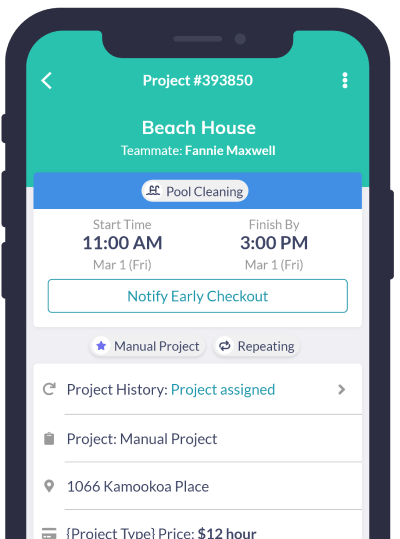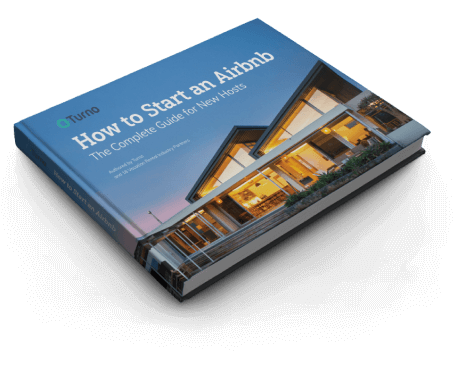Start With a Brainstorming Session
During this process, we must put ourselves back in the traveler’s shoes. Think of the type of people who would book your property and what would appeal to them. Go back to the exercise where you walked through your home as if it was the first time and wrote down the highlights of your property. Identify what makes it special.
It’s important to be very objective as too much information can cloud any reader. You might find that the property’s highlights are the amenities, the neighborhood, the access to public transportation, the location, and more. From all these assets, the key is to choose 4 or 5 selling points.
The things that set your property apart from the rest will be used to “brand” your property.
They’ll be used to create a cohesive listing that translates into a strong brand. If you have trouble finding your selling points, check out the property’s reviews to find what people find most valuable.

Craft an Engaging Headline
A great headline (along with your hero image) is the main point of attraction for your listing. You know you have a great headline when people click through to your listing from the channels’ search catalogs.
To craft a clickable headline, it needs to be creative and catchy for your guest target. For example, a headline like “1 bedroom apt. in Toronto” might resonate well with some, while “Stunning Designer Flat in Toronto” will speak better to others. Throw out bland, meaningless words like “nice,” “great,” and “clean” — you want to describe your unique home.
And be specific — you only get 50 characters to convince guests to click, so don’t waste them.
Here are a few practical tips and examples to help you get it right:
-
Do mention any new amenities or special features that other properties in your area don’t have.
- Example: Quaint Coastal Cottage w/ New Finnish Sauna
-
Do update your title with the seasons.
- Example: Sun-Soaked Days! Patio w/ Pool, BBQ, Lake Views
- Example: Wintery 1BD Cabin: Snowy Hills & Warm Fireplace
-
Do change your title for upcoming special events in your area.
- Example: Enjoy Semana Santa Processions from Your Balcony
- Example: Headed to Lollapalooza? 5-min Walk to Grant Park!
-
Do tastefully use symbols to help your title stand out.
- Example: Penthouse Near Penn’s Landing: 5★ Views
-
Don’t use tags or labels in your title to make tracking your listing more convenient for you.
- Example: 3BD Condo Santa Fe TR0501B
-
Don’t exaggerate or use superlatives.
- Example: Best House in All of Atlanta- Amazing!!!
-
Don’t write in all caps — it can make your listing look cheap.
- Example: AWESOME APARTMENT WITH FAST WIFI! GREAT DEAL!
-
Don’t go overboard with the symbols.
- Example: ★✈ Feel like a ♕, Walk➜Beach! Fun in ☀! You Will ♡
Include a Concise But Helpful Description
Before jumping into the writing, there are two important things to take into consideration: voice and length.
The tone of voice you will use throughout your listing depends on many things: your personality, the property, and most importantly — you guessed it — the type of guest you want to attract. Also, to truly capture the essence of your home, there’s no shame in looking up words in a thesaurus.
Most travelers will skim the description, so keep it short and informative. The description should allow them to easily identify if your property will fulfill their needs and expectations.
Get straight to the point and avoid long descriptive paragraphs. Break down larger chunks of texts into smaller bits and use spacing, bullets, or headings to make everything more digestible.
If you’re not sure if you need to add a particular text, ask yourself: Do guests need to know this specific piece of information before making their booking? If so, go ahead and include it, but keep it short and simple.

Sell the Experience You Provide
When writing your description, it’s important to focus on the experience. People are choosing to book a home rather than a hotel. The reason: the unique experience. They want to “live like a local.”
Aside from listing the amenities, which are important, focus on what they can expect. Does the neighborhood have a weekly market they can go to? Do they wake up hearing church bells or birds chirping? That’s an experience, and that’s why people book through these channels.
What to Avoid in Your Listing Description
Up until now, we’ve talked about things to focus on, but there are some things that may slip your mind.
For example, you want to avoid having people leave your listing. One way to do this is to avoid introducing unfamiliar words. When this happens, the potential guest will likely leave your listing to look up a certain word, completely distracting them from their booking process.
Here’s the golden rule: Never mention something (with no further explanation) that a first-timer to your town or city wouldn’t easily understand. Avoid:
- Local slang
- Obscure neighborhood acronyms
- Abbreviations
- Using the name of your condo community in your title or as one of your key selling points
Also, don’t conveniently “forget to mention” your property’s flaws. We can’t stress enough the importance of not overselling and managing guests’ expectations.
To avoid having underwhelmed and disappointed guests, leading to bad reviews, we encourage you to be honest and upfront about anything that could affect their stay. For example, if your property faces a busy, loud street full of bars and restaurants, you need to mention that.
This doesn’t mean that you can’t turn a negative into a positive. On the contrary, this may attract a specific type of guest and will let other travelers — in this example, families with younger children — know that this property might not be what they’re looking for.
Remember, if you’re proactive and disclose these details upfront, guests won’t feel let down.
Once the Listing Is Launched, the Magic Happens
Listing is the first part of making sure you maximize your revenue, but this must be complemented with its optimization, a bullet-proof dynamic pricing strategy, and excellent customer service.







